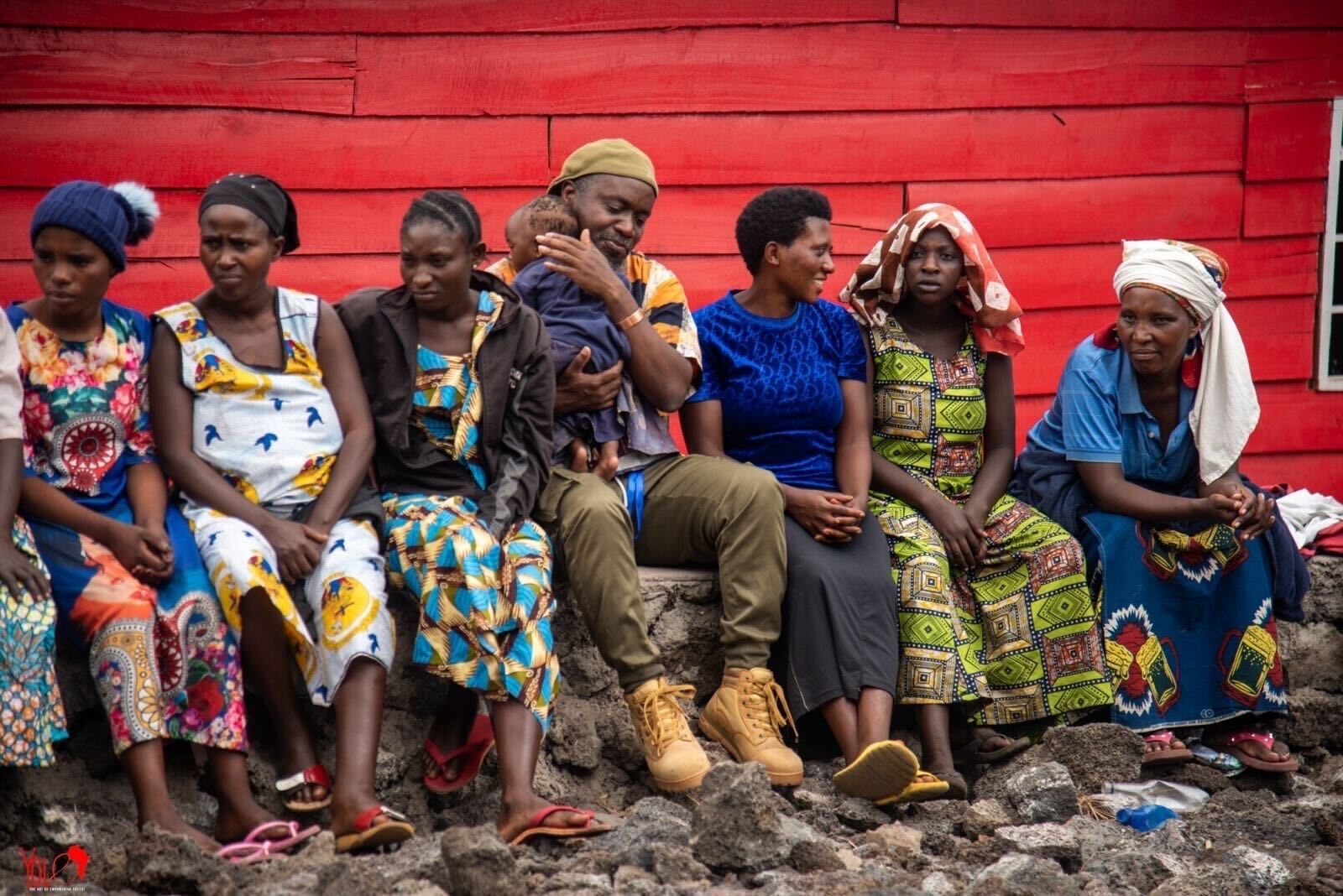An Indigenous union of approximately 10,000 artisanal miners and activists from the Congo Basin region of the Democratic Republic of Congo (DRC) emphasized the importance of grassroots initiatives in combating climate change.
Members of the Basandja Coalition spoke at a Monday event sponsored by the Department of African and African American Studies, Center for Human Rights and International Justice and Mineral-X. The event featured a documentary screening and interactive Q&A intended to raise awareness of the environmental and human rights challenges impacting Indigenous communities in DRC.
Petna Ndaliko Katondolo, a filmmaker and seventh-generation storyteller, described his work documenting the experiences of the Mamas — a group of internally displaced women from the Bulengo displacement camp in Eastern DRC. He noted the significance of promoting Indigenous knowledge and traditional agricultural practices to empower local communities and ensure protection of the environment.
The coalition is “creating tools that build values, and those values will be the core of how [Congolese] people will reimagine themselves,” Katondolo said.
The coalition’s visit also marked the final event of Stanford’s first-ever “Breaking the Silence” Congo Week. The week included programming that “commemorates the millions of lives lost in the Congo conflict” while “celebrating the enormous human and natural potential that exists in the country,” according to its website.
Since 1996, conflict has claimed an estimated 6 million lives in the Congo and displaced over seven million Congolese people. Hundreds of thousands of Congolese women have been forcibly evicted from their homes and subject to human rights abuses including sexual assault due to industrial mining of critical minerals, according to coalition members and organizers of Congo Week.
Samuel Yagase Bayombe, an Indigenous leader and rainforest defender who was at the event on behalf of the Basandja Coalition, urged increased awareness of the ongoing conflict and humanitarian crisis.
“The world keeps quiet. We know what is happening in Ukraine and Gaza,” Bayombe said. “How many of you know about the tragedy… happening in the Congo due to the mines, the so-called green transition, and the culture of resource extraction? The crime is in the Congo.”
Coalition members highlighted the impact of global warming, particularly flooding, on Indigenous communities. To address the consequences of climate change, the coalition has mobilized local groups to provide funding and assistance through grassroots initiatives.
The coalition, named after a traditional code of conduct for protecting forests, also underscored the importance of involving local people in environmental sustainability.
“We have been living [on our lands] for centuries,” Bayombe said. “We are the best protectors.”
Fatoumata Barrie ’24 M.A. ’25, lead organizer of Congo Week at Stanford, asserted the objective of Congo Week is to create a platform for Congolese people to share their experiences by facilitating collaboration and knowledge exchange between researchers at Stanford and members of frontline communities in DRC.
“We trust the Congolese people to come up with their own solutions,” Barrie said. “We just want to give them access to our material resources and platforms where they can speak for themselves.”
Bayombe expressed criticism of the role of foreign aid, arguing that the Congolese people possess the dignity and determination to rebuild their own communities. Bayombe said Congo does not need charity from the world, but solidarity.
Marie-Claire Faray, a women’s and human rights defender, brought attention to the marginalization of Congolese women due to ongoing gender-based violence. To support women’s health and rehabilitation for survivors of sexual abuse, she called for income-generating projects such as the distribution of sanitary pads to rural areas and agricultural initiatives.
The fact that Congolese people have to rely on imported food is “extremely indignifying,” Faray said.
“To have peace in the Congo, it doesn’t just mean the absence of war,” she said. “[It also means having] access to food and clean water.”
